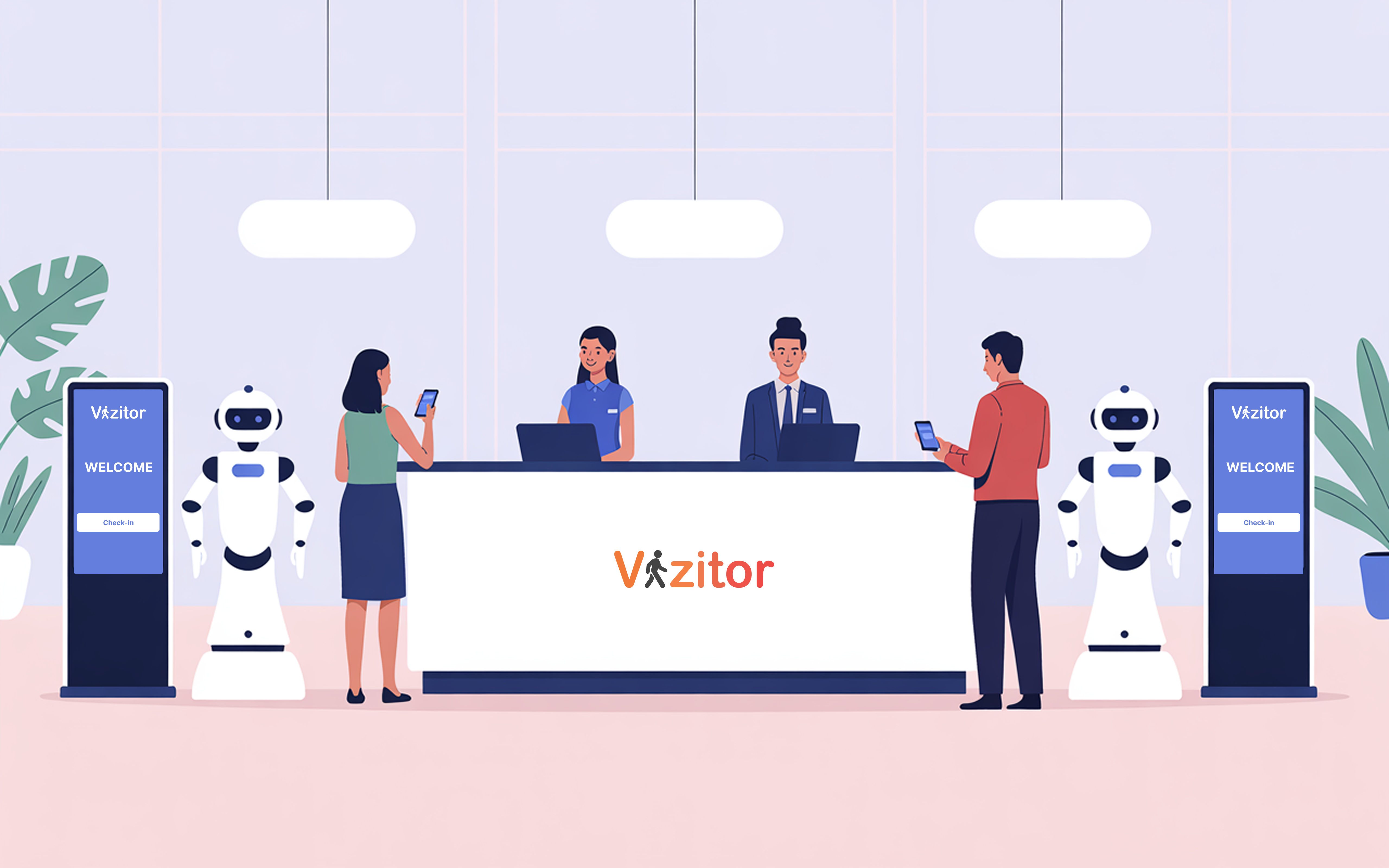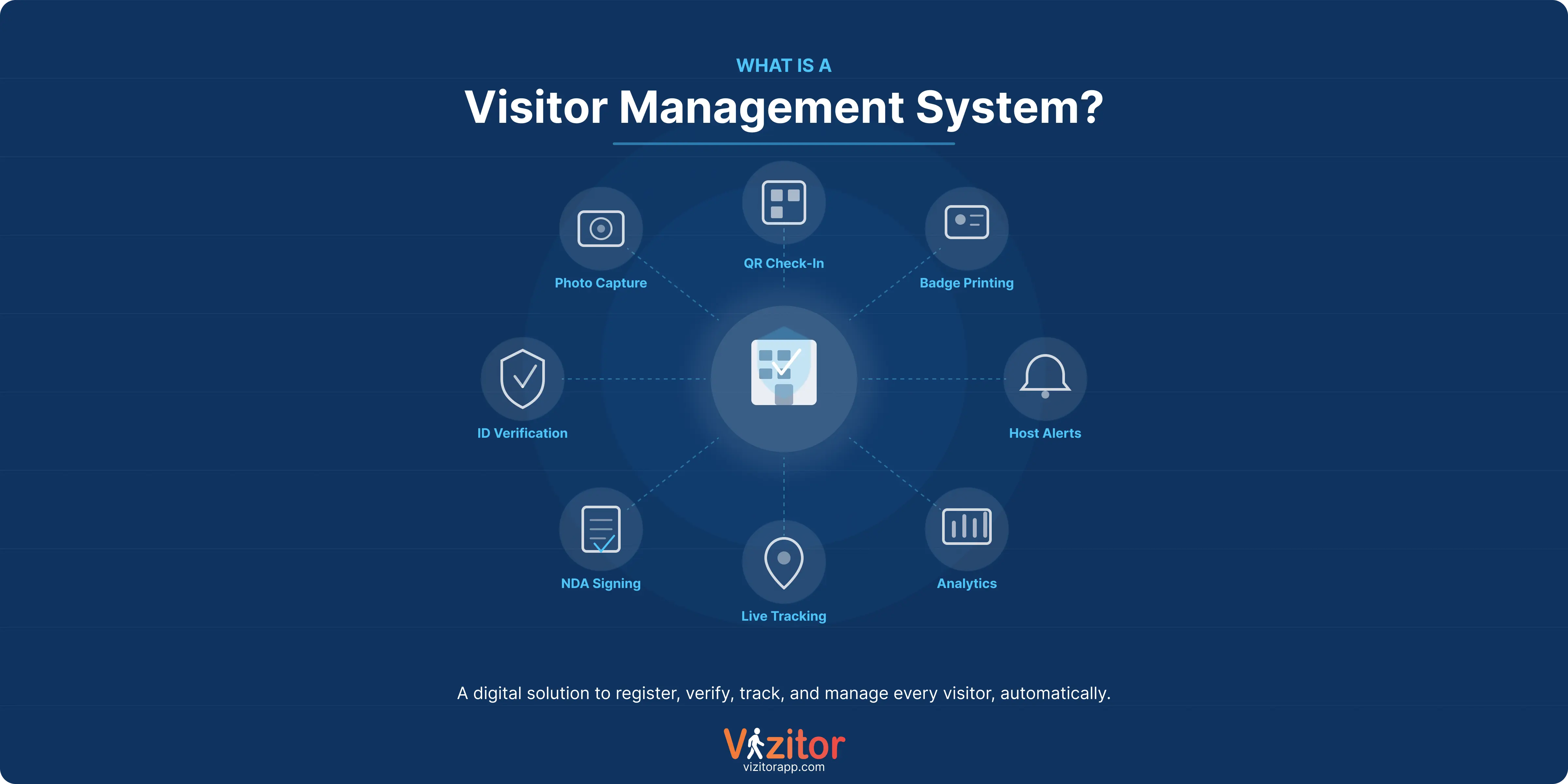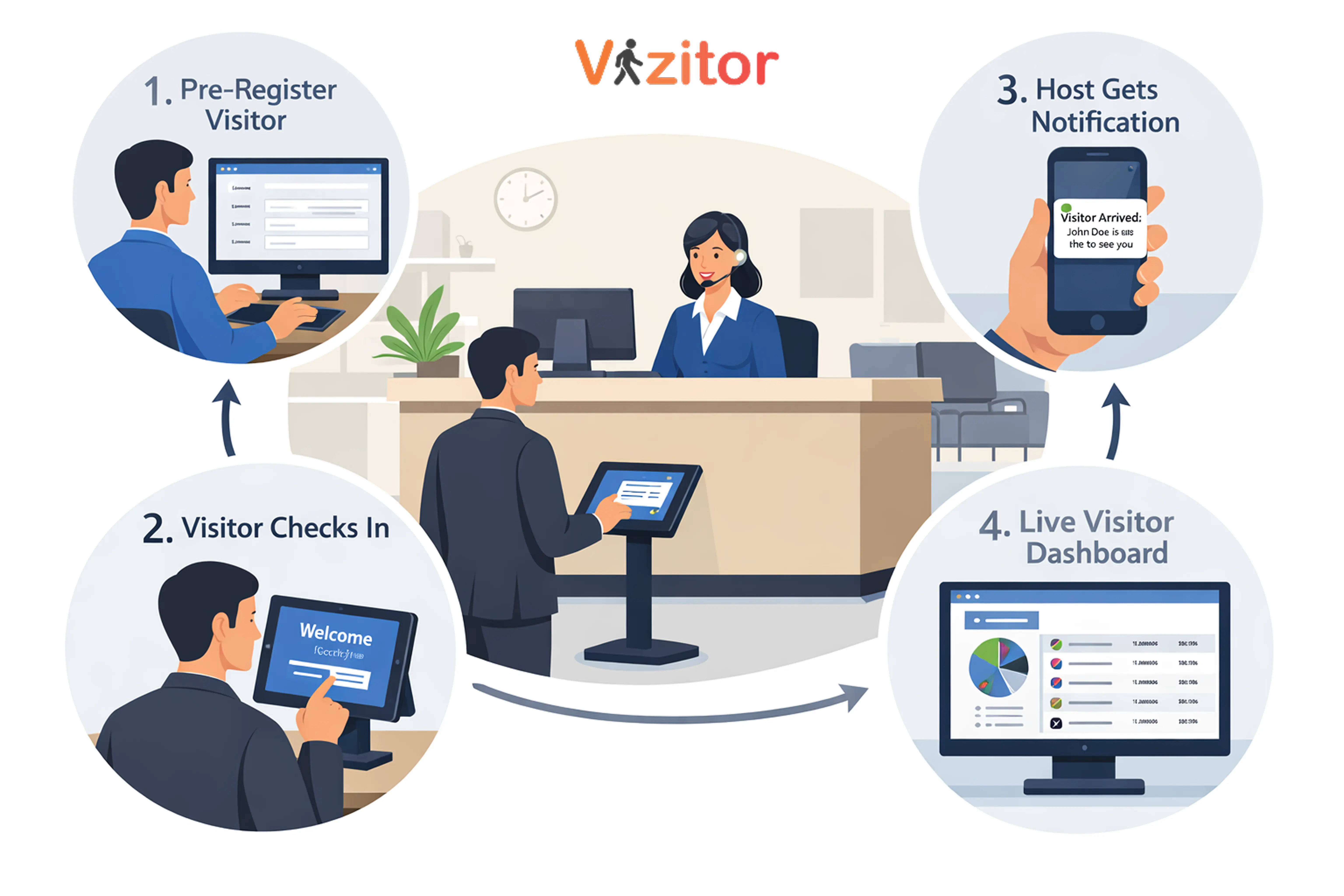Table of Content
Try Vizitor for Free!

Published on: Thu, Aug 14, 2025
Read in 4 minutes
The hospitality industry has always thrived on exceptional guest experiences, operational excellence, and adaptability to changing customer expectations. But in 2025, one factor stands out as the ultimate game-changer: AI-powered hotel management systems.
From predictive analytics that forecast occupancy rates to chatbots that respond to guest queries in seconds, Artificial Intelligence (AI) is no longer a “nice to have,” it’s becoming the backbone of modern hospitality.
In this guide, we’ll explore how AI is revolutionizing hotel management systems, the tangible benefits it brings, real-world use cases, and what the future holds for hotels ready to embrace this digital transformation.
What Are AI-Powered Hotel Management Systems?
An AI-powered hotel management system is an advanced platform that uses machine learning, natural language processing, and predictive analytics to automate and enhance hotel operations.
Unlike traditional property management systems (PMS), AI-driven solutions can:
- Learn from data to improve performance over time.
- Predict future outcomes, such as occupancy trends and maintenance needs.
- Personalize guest experiences based on past interactions.
- Automate repetitive tasks, freeing staff to focus on high-value activities.
These systems integrate seamlessly with booking engines, hotel CRM tools, revenue management platforms, and even physical IoT devices like smart locks or energy management systems.
Why AI Is Transforming Hospitality
The hospitality industry operates on slim margins and is highly sensitive to customer satisfaction scores. AI addresses these challenges by:
- Reducing costs through automation.
- Increasing revenue through dynamic pricing.
- Enhancing loyalty with personalized guest experiences.
Hotels leveraging AI are already reporting higher occupancy rates, better guest reviews, and improved profitability.
Key Benefits of AI in Hotel Management
1. Personalized Guest Experiences
AI systems analyze booking history, feedback, and even social media activity to offer:
- Tailored room recommendations.
- Customized dining suggestions.
- Bespoke offers for returning guests.
For example, if a guest previously booked a sea-view room and ordered vegetarian meals, the AI can automatically recommend similar options next time. This guest personalization increases satisfaction and loyalty.
2. Predictive Maintenance
One of the most expensive disruptions in hotels is equipment failure. AI-powered predictive maintenance uses real-time data from IoT sensors to:
- Monitor HVAC systems, elevators, and kitchen appliances.
- Identify anomalies before they escalate.
- Schedule repairs proactively.
This not only prevents unexpected breakdowns but also extends equipment life.
3. Dynamic Pricing & Revenue Optimization
Traditional pricing strategies often rely on seasonal trends or manual adjustments. AI-powered revenue management systems change this by:
- Analyzing competitor pricing.
- Monitoring demand in real-time.
- Adjusting room rates dynamically.
The result? Revenue optimization that ensures maximum profitability without alienating price-sensitive guests.
4. Automated Check-In & Concierge Services
Guests today value contactless solutions. AI-powered kiosks, mobile apps, and chatbots allow for:
- Seamless self check-in/check-out.
- Instant responses to guest queries.
- 24/7 concierge assistance.
These solutions free up front desk staff while delivering faster service.
5. Operational Efficiency
AI-driven analytics optimize everything from housekeeping schedules to inventory management:
- Predict room turnover times.
- Allocate staff efficiently.
- Automate stock replenishment for high-demand items.
For large hotels, this can translate into hundreds of labor hours saved per month.
How AI-Powered Hotel Management Systems Work
A robust AI hotel system typically combines multiple modules:
- AI-Driven PMS (Property Management System) - Centralizes reservations, room assignments, and billing.
- AI Chatbots & Messaging Platforms - Handles guest communication across channels.
- Revenue Management System (RMS) - Uses machine learning for pricing strategies.
- Guest Feedback Analysis Tools - Employs sentiment analysis to measure satisfaction.
- Energy & Sustainability Management - Optimizes lighting, heating, and water usage.
Integration
Integration is key. These systems connect with:
- OTA platforms
- Channel managers
- Hotel CRM software
- IoT devices (smart locks, thermostats, lighting)
The Future of AI in Hotel Management
In the next 5-10 years, we can expect:
- Hyper-Personalization: AI will anticipate guest needs before they ask.
- Voice-Activated Hotel Rooms: Integration with AI voice assistants for full room control.
- AI-Driven Marketing: Tailored campaigns based on micro-segmentation.
- Sustainable AI Solutions: Optimizing energy use to reduce carbon footprint.
The future is about blending AI efficiency with human hospitality to deliver unmatched guest experiences.
How Hotels Can Prepare for the AI Revolution
- Audit Current Technology - Identify which systems are AI-ready.
- Start Small - Implement AI chatbots or dynamic pricing tools before full-scale adoption.
- Train Staff - Ensure employees understand AI’s role and benefits.
- Partner with the Right Vendor - Choose providers with proven hospitality experience.
Conclusion
AI-powered hotel management systems are redefining what it means to run a successful hotel in 2025 and beyond. By leveraging AI for guest personalization, predictive maintenance, dynamic pricing, and operational efficiency, hotels can boost revenue, cut costs, and deliver experiences that guests remember.
The hotels that adapt now will not only survive but thrive in the future of hospitality.
Book a Demo.









